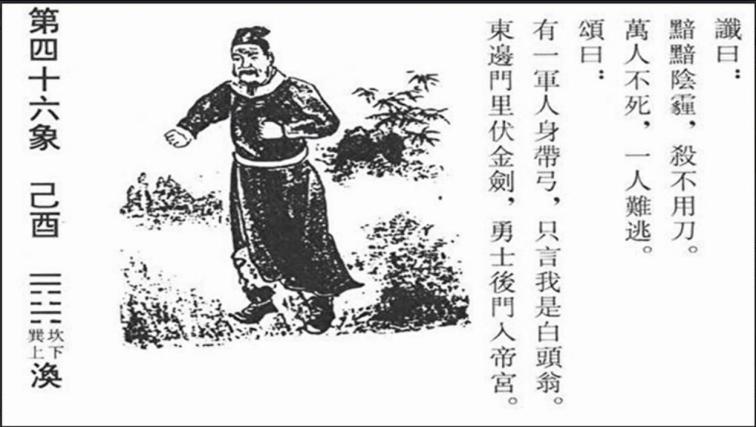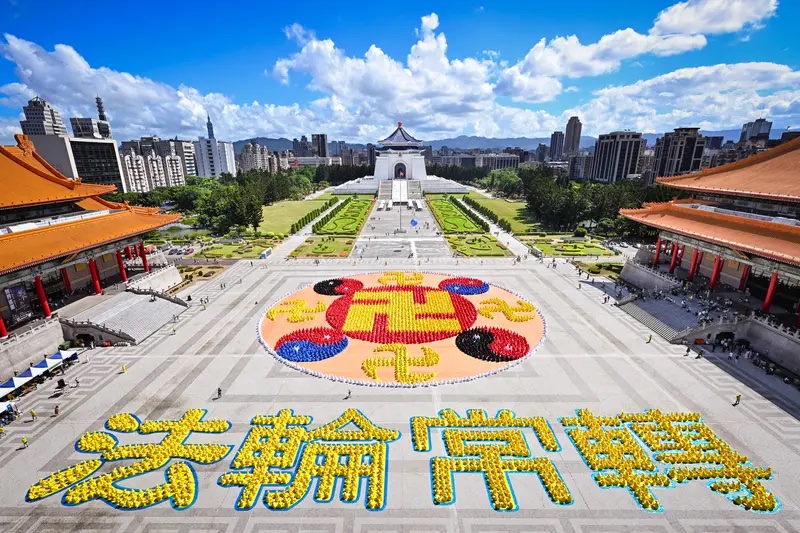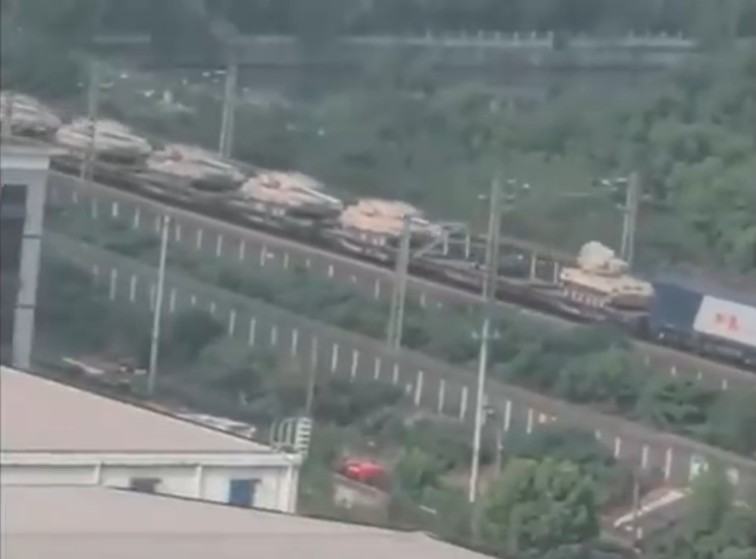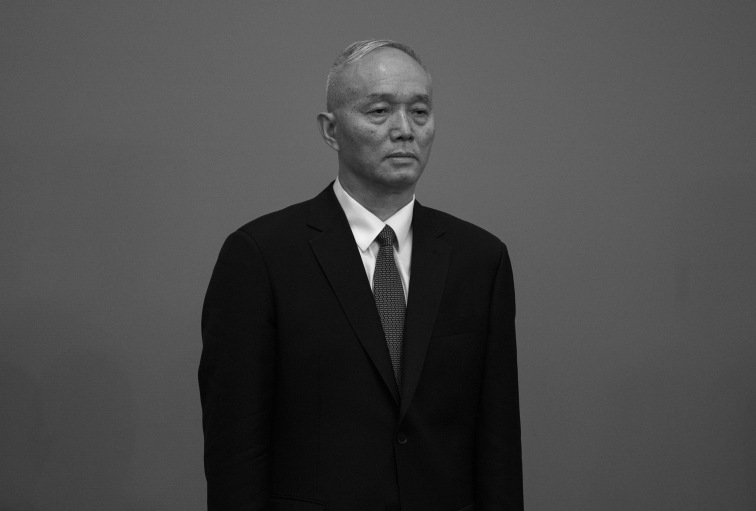Photo Caption: Chinese Communist Party leader Xi Jinping and Premier Li Keqiang (second from left) at the closing ceremony of the 20th National Congress of the Communist Party of China. Former President Hu Jintao was forcibly escorted out early. The congress concluded at the Great Hall of the People in Beijing, where Xi was expected to secure his third term. (Photo by Kevin Frayer/Getty Images)
[People News] Recently, there have been reports from overseas sources indicating that Zhang Youxia, the first vice chairman of the Central Military Commission and currently in control of military power, held a secret meeting with Hu Jintao, Wen Jiabao, Wang Yang, and Hu Chunhua to discuss some unusual developments. These include an unexpected change in the Central Guard Bureau's defence, the frequent appearances of Cai Qi and Wang Xiaohong at the Fourth Plenary Session venue, and ongoing alterations in security arrangements. As a result, Zhang is worried that the Xi faction might engage in dangerous actions at the venue, prompting the military to potentially intervene publicly. Zhang sought advice from Hu Jintao and the others on this matter.
Hu Jintao issued a warning to the Xi faction, while Wen Jiabao prepared for the worst-case scenario and expressed support for any actions Zhang Youxia might consider.
As this information comes from a single source, there is no corroborating evidence to verify its authenticity, but it is worth analysing. It is widely known that during the closing ceremony of the 20th National Congress of the Communist Party of China in 2022, Xi Jinping openly ordered Hu Jintao to be escorted out of the venue in front of all central committee members and foreign media, which created a profoundly negative impact within the Party. Although Xi successfully began his third term and appointed many loyalists to the Politburo and the Military Commission, his harshness has led many senior officials to distance themselves from him, setting the stage for Xi's current predicament.
In July of last year, following reports of Xi Jinping's stroke during the Third Plenary Session, a power struggle erupted within the Chinese Communist Party (CCP) over the division of authority. Over the past year, more and more signs have indicated that Xi's military and party powers have been lost or significantly diminished, with CCP elders, including Hu Jintao and Wen Jiabao, regaining control. Until the situation stabilises, Xi continues to play his role on the political stage to avoid causing turmoil within the CCP and Chinese society.
Xi's participation in this performance stems not only from his desire for power but also from his hope of finding opportunities to reclaim military and party authority. Investigations have targeted Xi's close military allies, He Weidong and Miao Hua, as well as many of his confidants, reportedly linked to a conspiracy to stage a coup within the military to wrest control from Zhang Youxia. However, this has resulted in a significant purge of Xi's influence in the military, with Zhang publicly refusing to accompany Xi to Kunming, Tibet, and Yunnan, signalling that their relationship has become irreparably strained.
This means that Xi's chances of reclaiming military power from Zhang Youxia are now nearly nonexistent. If Xi plans to take decisive action at the Fourth Plenary Session, aiming to arrest Hu, Wen, and other CCP elders, and recreate the dramatic scene from the closing ceremony of the 20th National Congress, he may only be able to rely on the Central Guard Bureau and the Special Operations Bureau of the Ministry of Public Security. However, this is contingent upon the loyalty of the leaders of these two departments to Xi.
While the Central Guard Bureau is officially under the Ministry of Public Security, it is actually subordinate to the Joint Staff Department of the Central Military Commission and is managed by the General Office, akin to the ancient 'Imperial Guards' or 'Yulin Army.' Its protective responsibilities are directed towards higher-level officials, primarily national leaders at the state level. Consequently, the director is often promoted to the rank of deputy theatre-level (deputy military region-level) general.
The Special Police Bureau of the Ministry of Public Security was formerly known as the Police Guard Bureau, which was one of the three active-duty forces originally managed by the Ministry of Public Security and was part of the armed police system, specifically the Armed Police Guard Force, organised at a regular military level. During the institutional reforms in 2018, the Armed Police Guard Force completely withdrew from active duty but continued to be managed by public security agencies, with the armed police structure being converted into a police structure. The Police Guard Bureau was renamed the Special Police Bureau, becoming one of the bureau-level institutions within the Ministry of Public Security, designated as the Eighth Bureau. Its primary responsibilities include the security of four vice-premiers and two high-ranking officials, the protection of foreign dignitaries visiting China, and ensuring the safety of major events.
The distinctions between the two are quite apparent. According to public records, the current director of the Central Police Guard Bureau is Zhou Hongxu. Reports indicate that as early as 2018, Major General Zhou Hongxu, who previously served as the Deputy Chief of Staff of the Northern Theatre Command Army, joined the Central Police Guard Bureau and became a close bodyguard to Xi. Following the mysterious death of former director Wang Shaojun in 2019, Zhou was appointed as the new director, indicating that he has earned Xi's significant trust.
Some analyses suggest that there is a connection between Zhang Youxia and Zhou Hongxu within the military, and Zhou's entry into the Central Police Guard Bureau likely received Zhang's endorsement and recommendation. If this is the case, it should be clear to Zhang whether Zhou Hongxu is loyal to Xi or to him.
If Zhou Hongxu is indeed loyal to Xi, Zhang Youxia would not have been caught off guard and would have proactively replaced him with a trusted confidant before the meeting, rather than waiting until it was convened. Reports from self-media in August indicated that Xi's close bodyguards had all been replaced, and it is evident that those responsible for the replacements could only be the elders of the Communist Party and military officials.
Let’s take another look at Wang Xiaohong, a close confidant of Xi Jinping, who is currently in the Ministry of Public Security. Following Xi's stroke last year, Wang Xiaohong noticeably changed his stance, no longer mentioning loyalty to Xi in his speeches. Since then, several deputy ministers with connections to Xi have been replaced, and the newly appointed deputy ministers do not have direct ties to Wang Xiaohong. These personnel changes within the Ministry of Public Security suggest that Wang Xiaohong's influence is also diminishing.
The current director of the Special Police Bureau of the Ministry of Public Security, Ling Zhifeng, was promoted in July this year by the director of the Political Department of the Ministry of Public Security. He has a long history of service in Zhejiang Province, where he has held various positions, including member of the Shaoxing Municipal Committee, director of the Shaoxing Public Security Bureau, deputy secretary of the Shaoxing Municipal Committee, deputy mayor, and secretary of the Political and Legal Committee. He has also served as the secretary of the Party Committee and director of the Emergency Management Department of Zhejiang Province, as well as the secretary of the Jinhua Municipal Committee. During his time in Zhejiang, he was a subordinate of both current Premier Li Qiang and Cai Qi. Ling Zhifeng's appointment to replace Wang Zhizhong does not appear to align with Wang Xiaohong's wishes.
A pertinent question arises: given the consensus within the Communist Party regarding Xi's potential resignation, the evident decline of Xi and his faction, and the military's already strained relationship with Xi, will Wang Xiaohong and Ling Zhifeng leverage their limited power, risking their lives and fortunes, to support Xi in making a comeback at the Fourth Plenary Session, attempting to reclaim power that is fundamentally irretrievable? The author believes that unless they are prepared to sacrifice everything, the likelihood of this happening is very low.
In the author's opinion, it is quite possible that Xi Jinping intends to leverage his trusted aides, along with the Central Guard Bureau and the Special Police Bureau of the Ministry of Public Security, to instigate disturbances at the venue, such as coercing Central Committee members to vote in his favour. However, it is unlikely that Hu Jintao, Wen Jiabao, Zhang Dejiang, and others would not have prepared contingency plans to mitigate potential risks in advance and prevent any unforeseen incidents at the venue, which is not particularly challenging. Additionally, Xi's trusted aides are likely aware that his influence is diminishing. Their unwavering loyalty can be exemplified by the recently announced generals, such as He Weidong and Miao Hua. Thus, the author concludes that the likelihood of an unexpected incident occurring at the Fourth Plenary Session is low.
(First published by People News) △











News magazine bootstrap themes!
I like this themes, fast loading and look profesional
Thank you Carlos!
You're welcome!
Please support me with give positive rating!
Yes Sure!